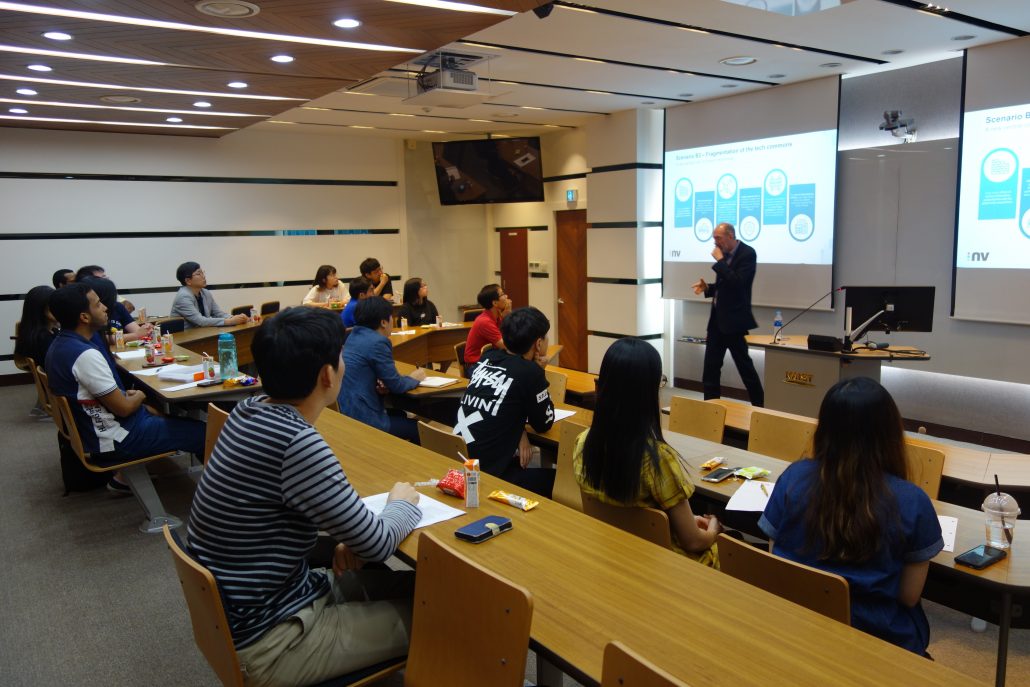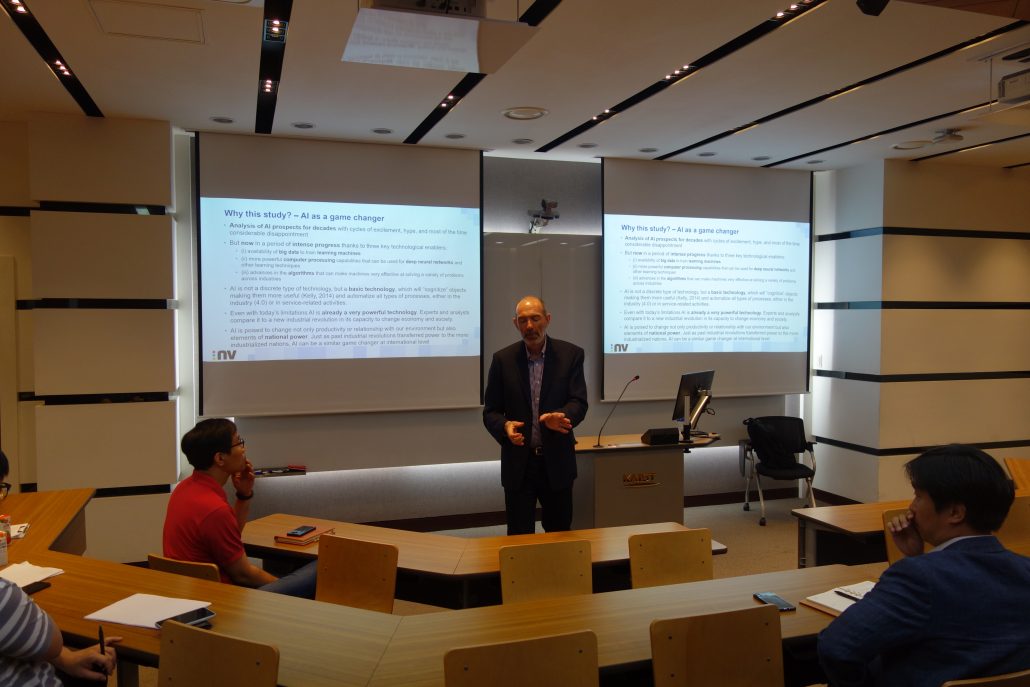행사&세미나
The industrial innovation ecosystem of artificial intelligence in China
2018.06.21
- 발표자
Claudio Feijoo, Ph.D
- 일시
2018-06-21 14:00
- 장소
#102, N22
2018 Global Innovation Seminar
DATE June 21, 2018. 14:00 ~ 15:30
PLACE #102, N22
Topic The industrial innovation ecosystem of artificial intelligence in China
Speaker Claudio Feijoo, Ph.D
Full Professor / Rector’s Delegate for Asia(VP)
Universidad Politecnica de Madrid, SPAIN
Summary:
Due to the consolidation of several key technological enablers, the field of artificial intelligence (AI) is experiencing a period of intense progress. Such enablers include: (i) the exponential growth of data that can be used to train learning machines; combined with (ii) more powerful computer processing capabilities that can be used for deep neural networks and other learning techniques; and (iii) advances in the algorithms that can make machines very effective at solving a variety of problems across industries. The case of China is particularly relevant, since the country is already a leading global force in the digital economy, as fuelled by three main factors: (i) a large and young Chinese market, enabling the rapid commercialisation of digital business models; (ii) a rich digital ecosystem, which is quickly expanding beyond the hegemony of a few large companies; and (iii) the strong support of the government as an investor, a consumer of digital technologies and a provider of access to key data for companies with favourable conditions. At the macroeconomic level, China has shifted into innovation as a panacea for increasing both the quality of products and productivity, expanding internal consumption as a means to decreasing the national dependence on external markets whilst adding value to its economy. In addition, regarding China’s role as global power, digital technologies are essential constituents of its strategy, the main objective being the showcasing of an independently-developed and state of the art industry based on an approach to economy and policy that differs from that of the West. In fact, since 2014, the government has launched a series of key national economic initiatives that touch upon AI: the 13th Five Year Plan, the Made in China 2025 initiative, the Robotics Industry Development Plan, and the Three-year Guidance for Internet Plus Artificial Intelligence Plan. The overall goal of these plans is to make China the leading figure in the world of AI by 2030.
Short Bio
Claudio Feijóo holds an MSc and PhD in Telecommunication Engineering and an MSc in Quantitative Economics. He is Full Professor at the Technical University of Madrid (UPM) where he researches on the future socio-economic impact of emerging information society technologies. Since 2014 he lives in China where he serves as Co-Director of the Sino-Spanish Campus at Tongji University in Shanghai as well as responsible for Asia affairs at UPM as Rector’s Delegate. Among his main experience he spent two years at the Institute for Prospective Technological Studies of the European Commission researching on the future prospects of mobile content and applications.



